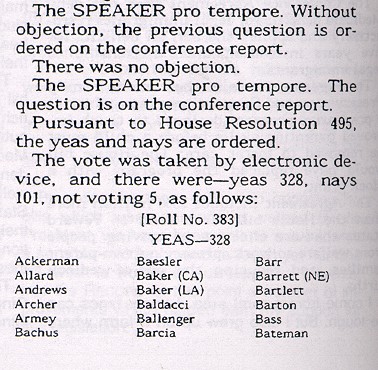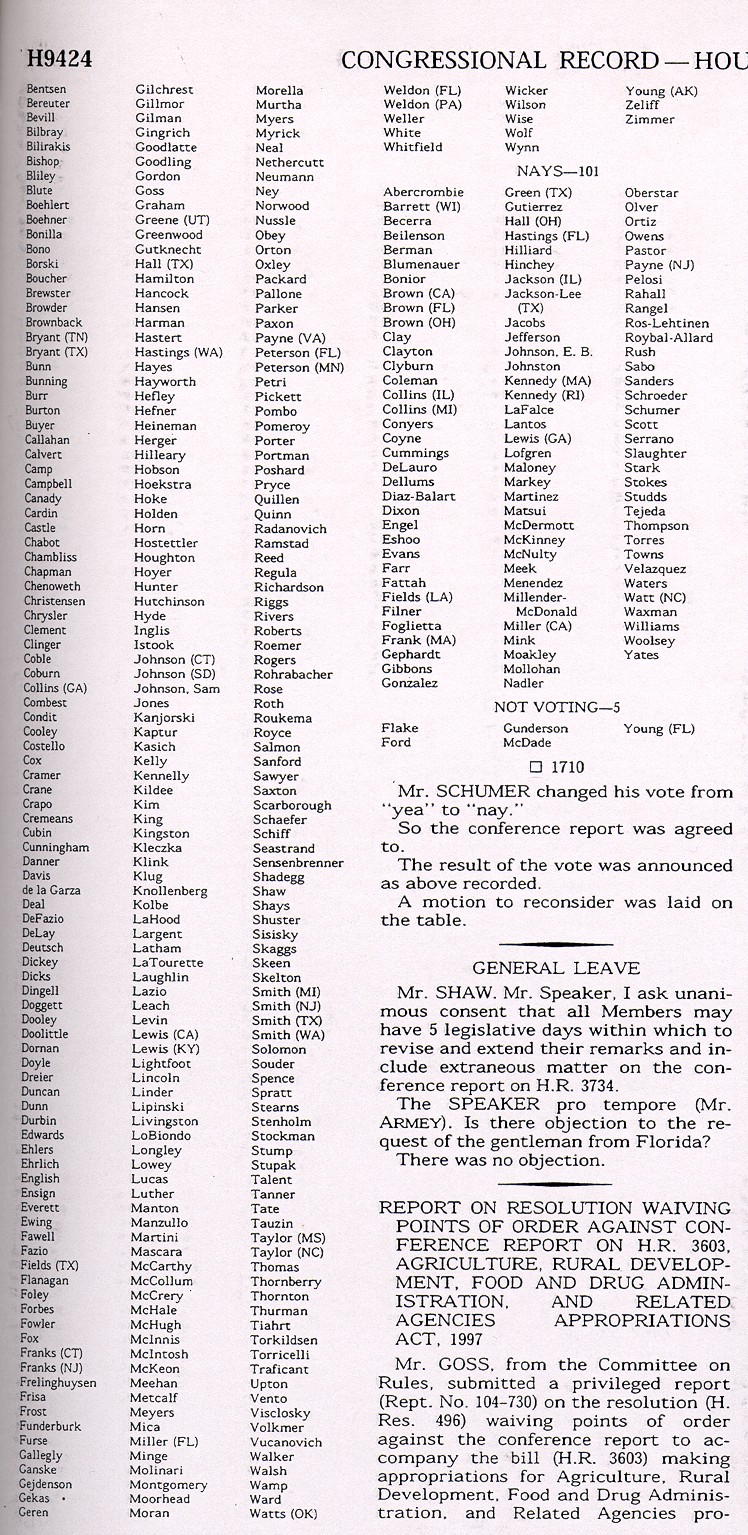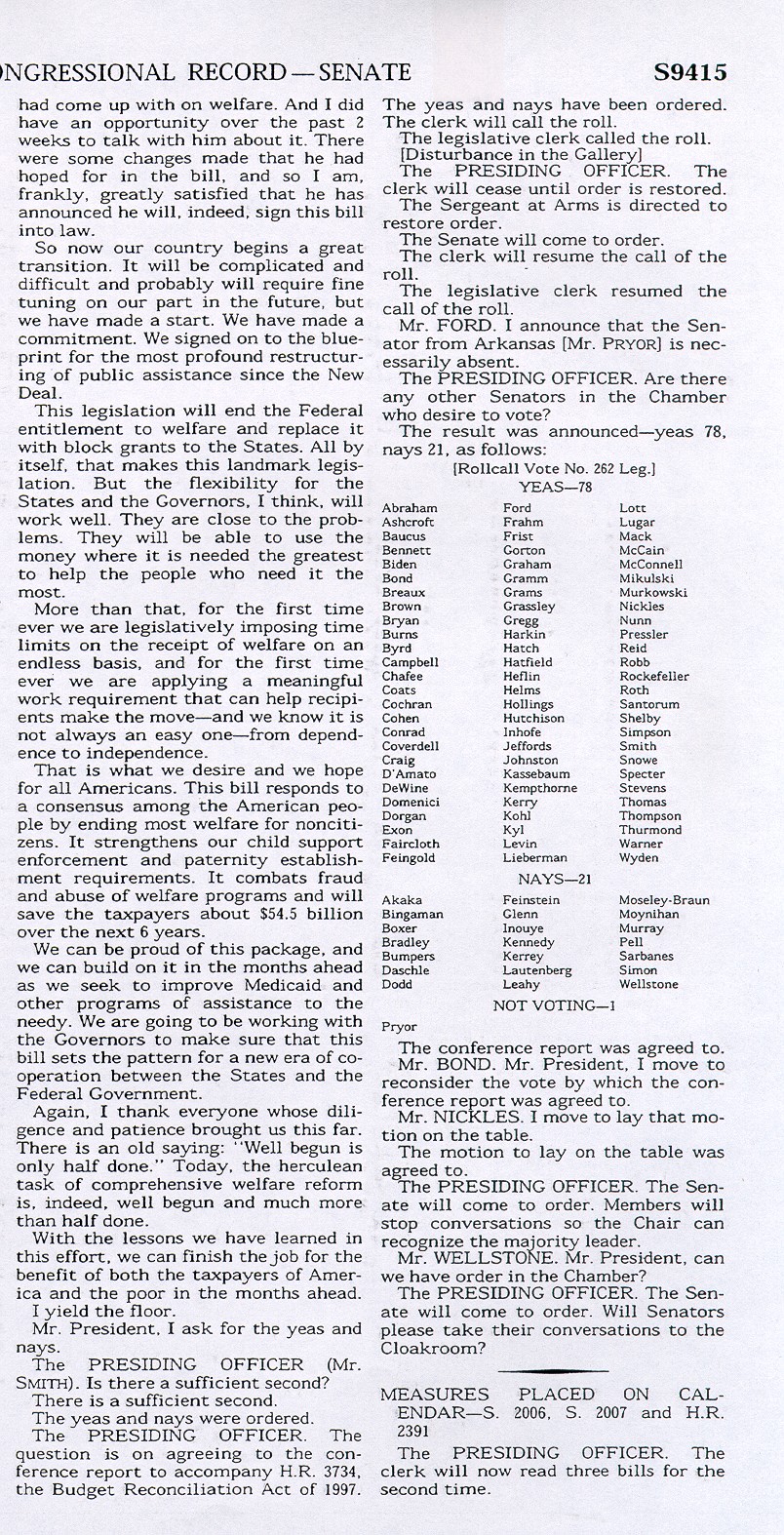1996 Welfare Amendments
The Personal Responsibility and Work Opportunity Reconciliation Act of 1996 (P.L. 104-193) began life as H.R. 3734 in the House of Representatives. This main purpose of this bill was to repeal Title IV of the Social Security Act of 1935, and the program then known as Aid to Families with Dependent Children (AFDC). This is the only program from the 1935 Social Security Act to ever have been repealed. Popularly, the bill was known as "welfare reform" legislation. The main reform introduced by the bill was the end to AFDC as a categorical entitlement and its replacement by a time-limited benefit program, tied to a work requirement. The new program is known as Temporary Aid to Needy Families (TANF). H.R. 3742 was one of several versions of the legislation that had been introduced in the House starting in early 1995. H.R. 3742 was the version that finally prevailed in the House, passing the House on July 18, 1996 by a vote of 256-120. The Senate began work on its own bill (S. 1956) in July 1996, and after the House passed H.R. 3742 the text of the House bill was incorporated into S. 1956, and this expanded bill passed the Senate on July 23, 1996 by a vote of 74-24. The Conference on the differing bills was concluded on July 30, 1996 and the Conference Agreement (House Report No. 104-725) was considered in the House the next day, and in the Senate two days later. The results of those final votes on passage of the Conference Agreement are reported below.
|
||||||||||||||||||||||||||||||||||


